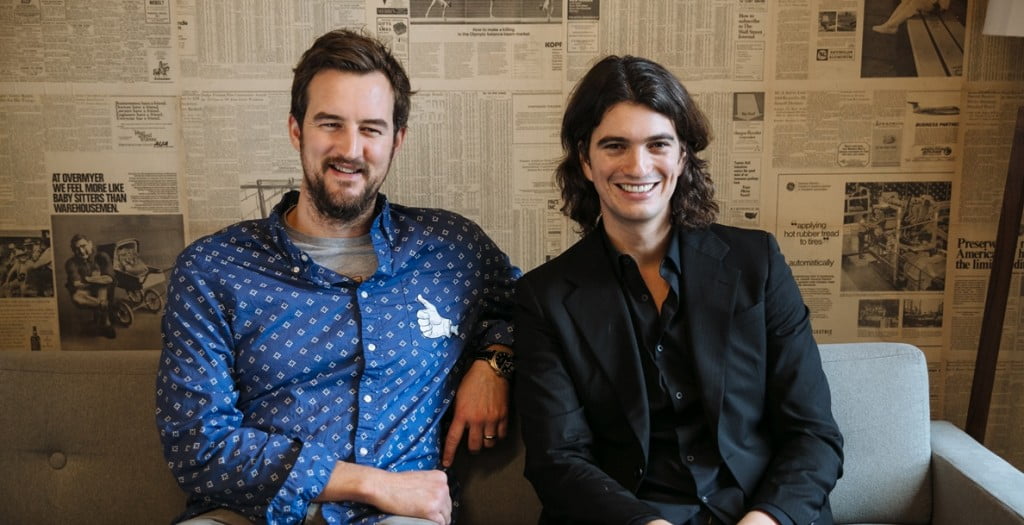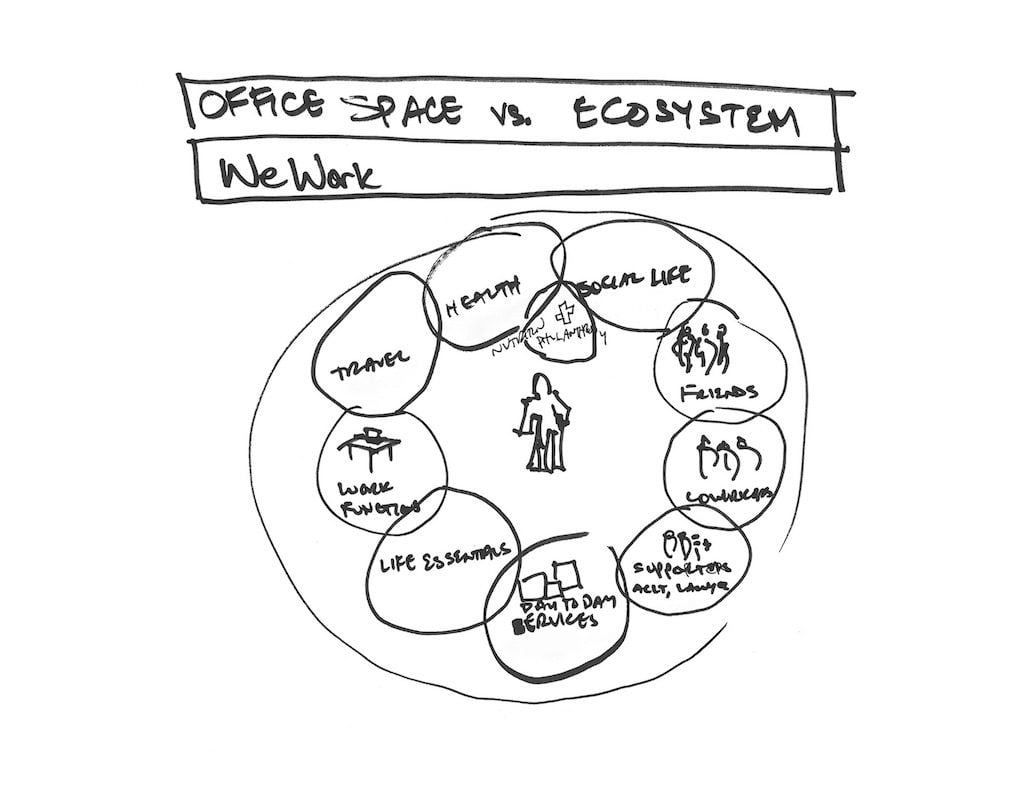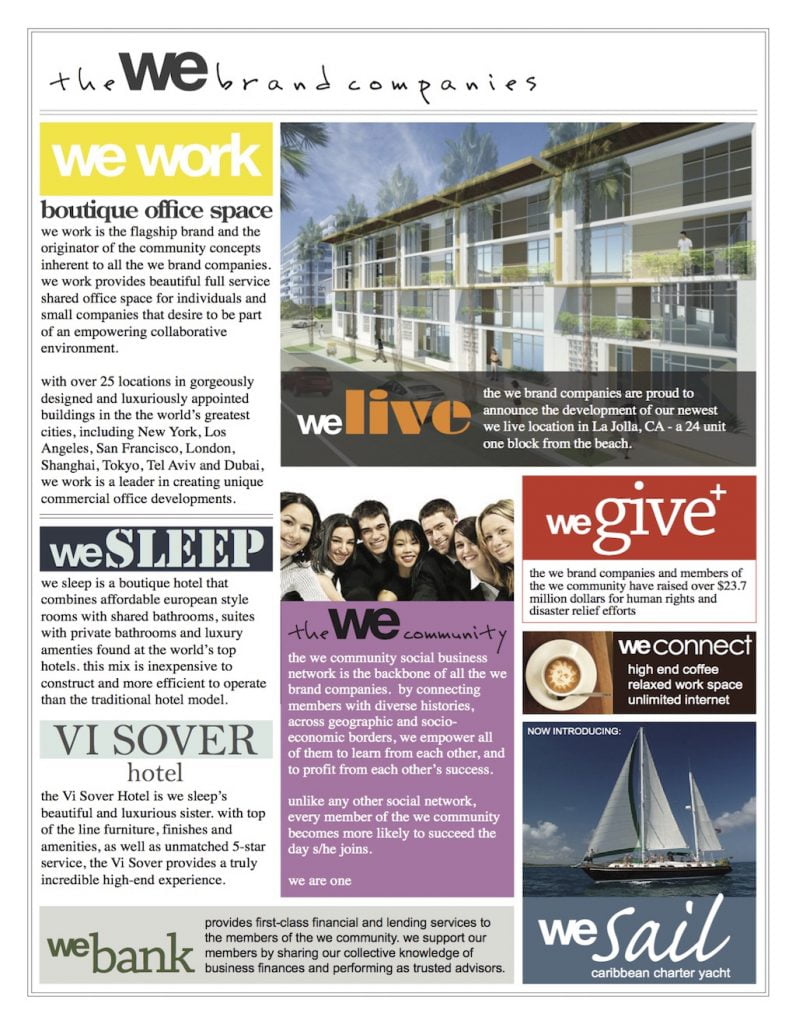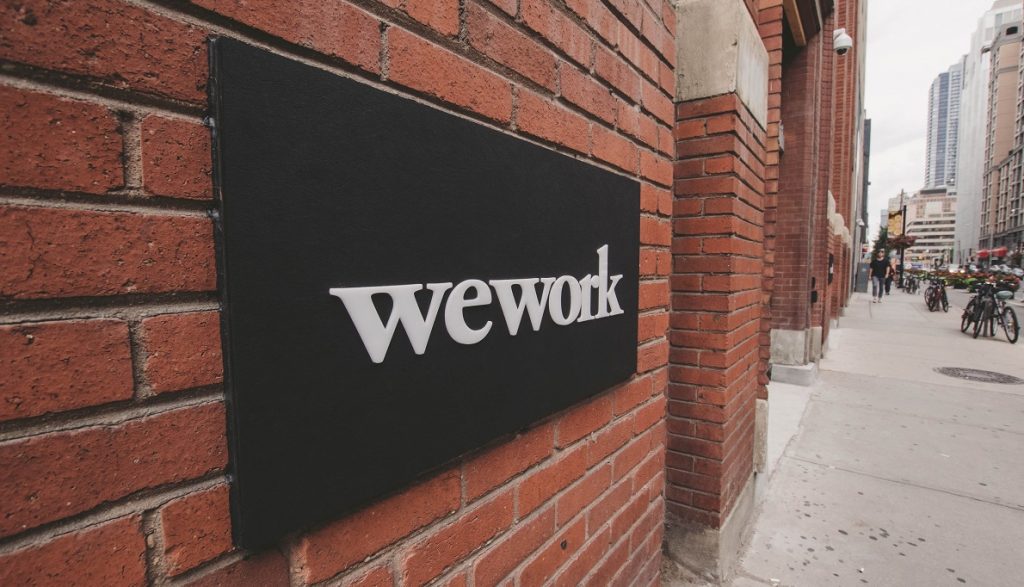WeWork, the shared workspace company that took over the world, has rebranded as “The We Company” to better incorporate its different business lines and expand into new ventures following a fresh $2 billion investment from Japanese tech giant SoftBank Group Corp, valuing the company at an eye-popping $47 billion. The rebranding also comes amid the company’s hinted-at plans to break into different sectors, like the financial industry, and grow exponentially to become a more integral part of people’s lives, both in the physical and digital spaces.
WeWork was founded in 2010 in New York and spread quickly, conquering shared workspaces worldwide in under a decade with now more than 400,000 members in 100 cities across 27 countries. One of its first international locations was Tel Aviv, where it now has seven sites. WeWork also works with enterprise customers (members with over 1,000 employees) and Fortune 500 companies, including major ones such as Microsoft, Facebook, Adidas and Salesforce. These customers now account for over 30 percent of the company’s total membership base.
In 2016, the company embarked on a series of initiatives meant to encourage collaborative experiences starting with WeLive, an urban co-living community that provides furnished apartments, communal spaces and shared amenities, in New York City and Arlington, Virginia, with plans for Tel Aviv as well. Next came Rise by We, a wellness club and “superspa” also in the Big Apple, that builds on the “We” concept of communal experiences, launched in 2017.

Miguel McKelvey and Adam Neumann, founders of WeWork
That same year, WeWork launched a private children’s school — WeGrow — for “conscientious entrepreneurs,” and branched into vocational education as well, having bought New York’s Flatiron School, which offers a coding bootcamp as well as a number of free and certificate courses.
In an official statement, The We Company said it will establish WeWork, WeLive, and WeGrow “as three distinct business lines that will expand upon WeWork’s existing efforts in these areas: WeWork’s mission is to create a world where people work to make a life, not just a living; WeLive’s mission is to build a world where no one feels alone; and WeGrow’s mission is to unleash every human’s superpowers.”
“The idea that began in New York nine years ago was always about more than work—it was about supporting all aspects of life. As we’ve built WeWork, our community taught us that we are more alike than we are different. It taught us that we all thrive when we have a purpose. And it taught us that experiences bring more fulfillment and joy than material goods,” wrote WeWork co-founders Adam Neumann, his wife Rebekah Neumann, and Miguel McKelvey, in a blog post on Tuesday.

A drawing of the vision for the WeWork ecosystem drawn by Miguel McKelvey, Photo courtesy of WeWork
In a company statement, Neumann, who was born and raised in Israel, said that through the “extended WeWork network and the Meetup community, The We Company now touches approximately 5 million people around the world, with the funding to reach millions more.”
“We’re driven by the impact we know we can have when we all work together with a shared intention,” he added.
In an exclusive interview with Fast Company this week, Neumann indicated that The We Company is now in a position to take on its grander ambitions. Neumann told Fast Company that he and McKelvey recently found an old pitch deck they put together six months before launching WeWork.
Sign up for our free weekly newsletter
Subscribe“It dates back to 2009, and on it they mapped out plans for everything from WeSleep to WeSail to WeBank,” Fast Company reports. “When asked about WeBank, Neumann confirms, ‘It’s coming,’ but he declines to offer specifics.

A mock-up from 2009 showing WeWork’s ambitions. Photo courtesy of WeWork
“We’s guiding mission is to elevate the world’s consciousness. Living a conscious life means choosing to live proactively and with purpose. It’s being a student of life, for life, where we accept that we are always growing and in a constant state of self-discovery, self-growth, and change,” the Neumanns and McKelvey wrote in the blog post.
The Fast Company report also details what is being perceived as a setback for The We Company, following an initial Softbank deal hashed last month to invest $16 billion in the firm to not only drive its biggest ambitions but to buy out all of Neumann’s and McKelvey’s other investors. The deal fell through amid December’s market troubles, but Neumann, “who took a day…to recover” came up with a revised plan for $1 billion in new capital and another $1 billion for shareholders, with more capital promised in 2020.
“Anyone familiar with WeWork’s grandiose schemes will not be surprised that its reaction to losing some $14bn in potential investment from SoftBank is to double down on expansion and rebrand as The We Company,” wrote the Financial Times in a column titled “WeWork: The Woe Company”.
Neumann seems unfazed by a potential economic downturn, which economists are warning of, and declining leasing prices.
“When 2019 comes and if the world goes into a real downturn, the one thing you are not going to see us do is be afraid or slow down or take less risks,” he told Fast Company.
SoftBank, which previously invested $8 billion in WeWork, also appears to be holding steady.
“WeWork is disrupting a multi-trillion-dollar industry with a technology platform that provides a complete solution for space needs,” said Masayoshi Son, Chairman and CEO of SoftBank Group. “WeWork has already experienced unparalleled growth and we are confident that with Adam’s vision and this growth capital the company will be able to aggressively pursue the enormous market opportunity ahead of them.”
Related posts

Editors’ & Readers’ Choice: 10 Favorite NoCamels Articles

Forward Facing: What Does The Future Hold For Israeli High-Tech?

Impact Innovation: Israeli Startups That Could Shape Our Future




Facebook comments